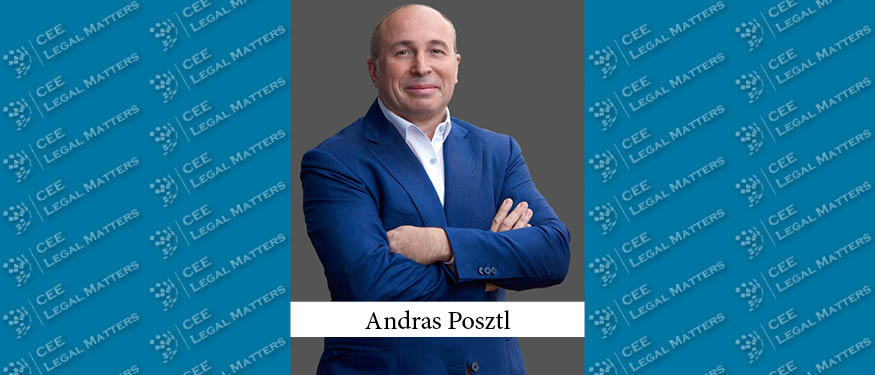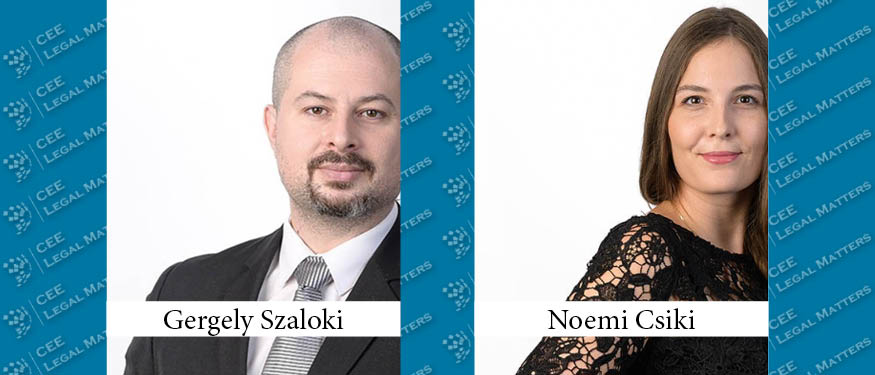Following the restrictions in the Far East, all companies operating online marketplaces in Hungary can expect significant tax changes and a new tax burden from January 2025.
Oppenheim and DLA Piper Advise on Generali Biztosito's Sale of Fundamenta Lakaskassza to MBH Bank
Oppenheim has advised Generali Biztosito on its sale of its minority stake in Fundamenta Lakaskassza to MBH Bank. DLA Piper advised MBH Bank.
A Platinum Anniversary: DLA Piper Celebrates 20 Years in Hungary
DLA Piper Hungary marks a major anniversary, celebrating 20 years in the market since its establishment in 2004. Country Managing Partner Andras Posztl speaks about the firm’s sustained success and its commitment to innovation and growth as it looks to the future.
Rowan Legal, Erdos Partners, Biris Goran, and HKV Announce Horizons Alliance
Former NGL Symbio alliance founding members Rowan Legal, Erdos Partners, Biris Goran, and HKV have announced a new set-up under the Horizons Alliance brand.
Hogan Lovells and Oppenheim Advise on MOL's Sale of 49% Stake in ENEOS MOL Synthetic Rubber to ENEOS Materials
Hogan Lovells has advised Hungarian oil and gas company MOL on the sale of its 49% stake in Eneos MOL Synthetic Rubber to Japan-based Eneos Materials Corporation. Oppenheim, working with Freshfields Bruckhaus Deringer, advised Eneos Materials Corporation.
A New Economic Policy Action Plan Arrives With Tighter Conditions for Airbnb Apartments
On 16 October 2024, the Hungarian Government decided on a new economic policy action plan consisting of 21 measures, which also addresses the situation of short-term housing in the capital. The Government intends to tighten conditions for providing private accommodation services, i.e. Airbnb, to solve the worsening housing crisis in Budapest.
Factoring in Hungary: A Liquidity Solution and Regulatory Challenge
Factoring has emerged as an essential financial solution for businesses in Hungary, offering a fast and flexible way to maintain cash flow and bridge liquidity gaps, especially for those with extended payment terms in sectors like agriculture, manufacturing and logistics. However, navigating Hungary’s complex regulatory landscape can pose challenges for companies seeking to use factoring to its fullest potential. With options like silent factoring available to help preserve client relationships and a need for thorough understanding of local laws, businesses can benefit significantly from a strategic approach. This article explores the advantages of factoring in Hungary, along with key regulatory considerations to ensure compliance and stability in companies’ financial operations.
More Flexibility in Paternity Leave
On 29 October 2024, the Hungarian Ministry of National Economy announced that new laws are submitted to the Parliament to increase the period available for requesting paternity leave.
A Challenging Year in Hungary: A Buzz Interview with Csaba Polgar of Pontes Budapest
Hungary’s economy and legal market have faced a tough year, shaped by political tensions, economic challenges, and global uncertainty, according to Pontes Budapest Partner Csaba Polgar, and from delayed investments to unpredictable regulations, the market has been navigating a challenging and uncertain landscape.
Dentons Advises GTC on Real Estate Portfolio Acquisition from Peach Property Group
Dentons has advised Globe Trade Centre on the acquisition of a real estate portfolio from the real estate investor Peach Property Group. GTC acquired the portfolio in a consortium along with Luxembourg Finance House. Greenberg Traurig's Germany office reportedly advised Peach Property Group.
Deloitte Legal and Schoenherr Advise on PortfoLion Capital Partners' Investment in 4FIZJO
Deloitte Legal has advised PortfoLion Capital Partners on their investment in 4FIZJO. Schoenherr advised 4FIZJO.
New Curia Ruling on Rest Periods: Mass Lawsuits and Retroactive Pay on the Horizon?
A recent ruling by Hungary's Curia could signal a wave of lawsuits and substantial overtime compensation claims, potentially impacting millions of workers. According to a March 2023 ruling from the European Court of Justice (ECJ), the daily rest period - a minimum break between shifts - is distinct from the weekly rest period and must be provided beforehand.
Strengthening Economic Ties: Hungary and Serbia Amend Double Taxation Convention
The longstanding partnership between Hungary and Serbia has taken another step forward with the recent amendment to the double taxation convention. These agreements are crucial for eliminating double taxation on income and assets for both individuals and companies, fostering a more favorable business climate.
FDI Screening in CEE: A CEE Legal Matters Round Table
On November 7, 2024, M&A experts from Austria, Bosnia & Herzegovina, Croatia, Greece, Hungary, Moldova, Romania, and Ukraine participated in a virtual round table moderated by CEE Legal Matters Managing Editor Radu Cotarcea to discuss the FDI screening regimes in their country and key developments in the area on the horizon.
A New Central Consumer Body is Expected from 1 January 2025
On 10 October 2024, the Ministry of National Economy published a draft Government Decree on the National Trade and Consumer Protection Authority and another one on the amendments to the Government Decrees related to the establishment of the National Trade and Consumer Protection Authority.
Parliament Decided to Extend the State of Emergency
The Hungarian Parliament voted to extend the state of emergency with an additional 180 days. The Hungarian Government declared a state of emergency by a government decree that entered into force on 25 May 2022.
Stricter Emission Limits for Toxic Substances Introduced in the Environmental Regulation
The Ministry of Energy, taking into account regulatory experience as well as public feedback, has adjusted the emission limits for several particularly toxic air pollutants in factories, raising them to stricter levels in line with German standards, which are more stringent than the EU regulations.
Lakatos, Koves and Partners Advises Green Power Investment on Sale of Two Hungarian Photovoltaic Projects
Lakatos, Koves and Partners has advised Green Power Investment on the sale of two Hungarian photovoltaic projects with a combined capacity of 7.7 megawatts to an unidentified Austrian investor.




















